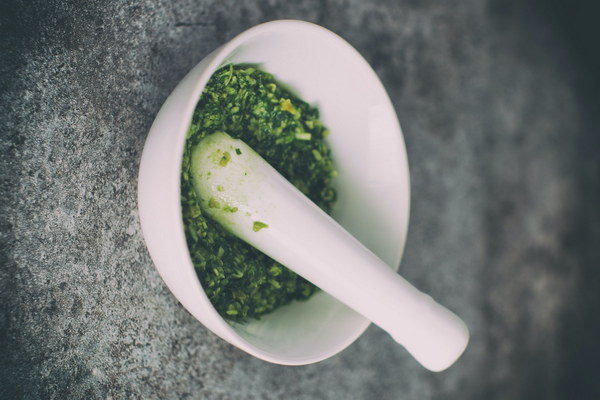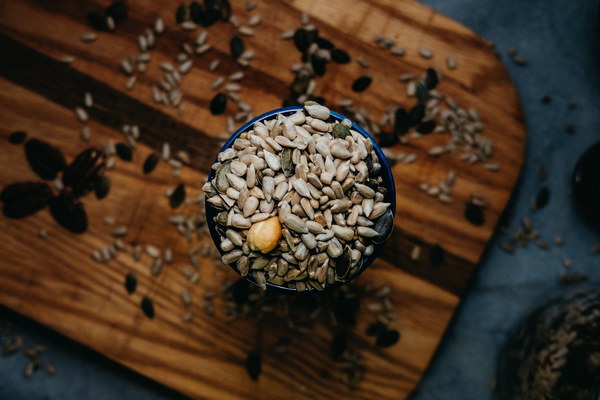Nurturing Your Stomach A Guide to Alleviating Cold and Dampness in the Digestive System
Introduction:
In traditional Chinese medicine, the stomach is considered the king of organs, playing a crucial role in digestion and nutrient absorption. However, when the stomach is affected by cold and dampness, it can lead to various digestive issues. In this article, we will explore the causes of stomach cold and dampness, and provide practical tips on how to nourish your stomach and alleviate these discomforts.
Causes of Stomach Cold and Dampness:
1. Poor diet: Consuming excessive cold, raw, or damp foods, such as ice cream, cold drinks, raw fruits, and vegetables, can lead to an imbalance in the stomach's temperature and moisture levels.
2. Excessive dampness: Living in a humid environment, wearing damp clothes, or being exposed to dampness for an extended period can lead to the accumulation of dampness in the body, affecting the stomach.

3. Weak digestion: A weak digestive system can struggle to process food properly, resulting in the formation of dampness and cold in the stomach.
4. Emotional stress: Chronic stress and anxiety can disrupt the balance of the body's internal environment, leading to the development of stomach cold and dampness.
Symptoms of Stomach Cold and Dampness:
1. Nausea and vomiting: A common symptom of stomach cold and dampness is a sensation of nausea, which may lead to vomiting.
2. Indigestion: Difficulty digesting food, bloating, and gas are common symptoms when the stomach is affected by cold and dampness.
3. Diarrhea or constipation: Stomach cold and dampness can lead to either diarrhea or constipation, depending on the individual's constitution.
4. Weakness and fatigue: A constant feeling of tiredness and weakness may accompany stomach cold and dampness.
Tips for Nourishing Your Stomach and Alleviating Cold and Dampness:
1. Adjust your diet: Incorporate warm, cooked foods into your diet, such as soups, stews, and steamed vegetables. Avoid cold, raw, and damp foods, as well as overly spicy or greasy dishes.
2. Stay hydrated: Drink warm water or herbal teas throughout the day to maintain a healthy balance of moisture in your body.
3. Exercise regularly: Regular exercise can help improve digestion and circulation, reducing the risk of dampness and cold accumulation in the stomach.
4. Manage stress: Practice stress-relieving techniques, such as meditation, yoga, or deep breathing exercises, to maintain a balanced emotional state.
5. Use herbal remedies: Certain herbs, such as ginger, cinnamon, and turmeric, have warming properties that can help alleviate stomach cold and dampness. Consult with a qualified practitioner before using herbal remedies.
6. Acupuncture and massage: These traditional Chinese medicine practices can help balance the body's energy and alleviate symptoms of stomach cold and dampness.
Conclusion:
Maintaining a healthy stomach is essential for overall well-being. By understanding the causes and symptoms of stomach cold and dampness, and implementing the tips outlined in this article, you can take proactive steps to nourish your stomach and improve your digestive health. Remember to consult with a healthcare professional or a qualified practitioner before making any significant changes to your diet or lifestyle.









